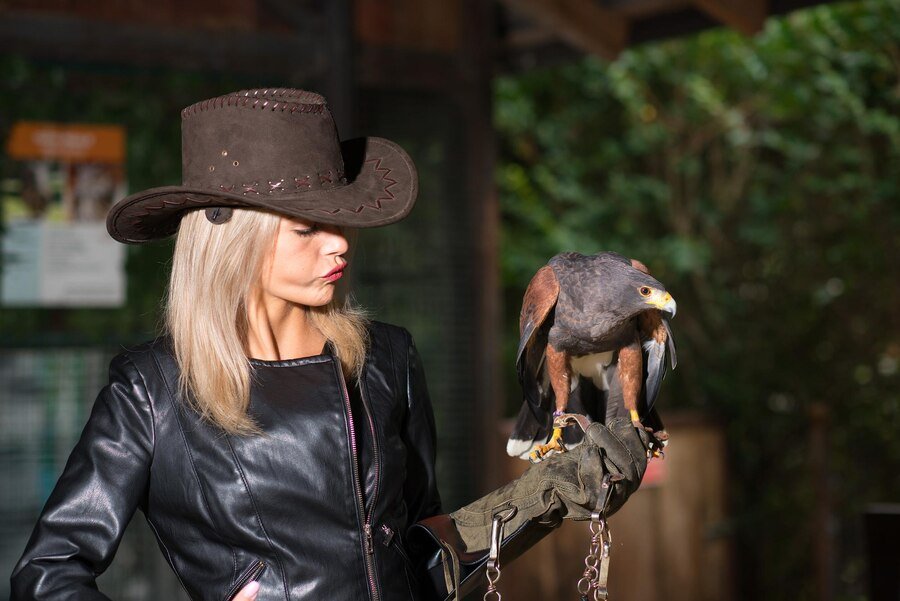Eagle skin boots, known for their distinctive texture and rarity, evoke both fascination and controversy. While they are often admired for their unique appearance, their creation poses serious legal and ethical dilemmas. Let’s delve into the history, legality, and ethical implications of these rare boots and explore why they remain a contentious topic in fashion and wildlife conservation.
What Are Eagle Skin Boots?
Eagle skin boots are footwear crafted using the skin of eagles, particularly prized for their distinctive feather patterns and textures. Historically, these boots were rare and seen as luxury items, often associated with status and exclusivity. However, the rarity of eagle skin and the protected status of these birds have made such boots nearly non-existent in today’s legal market.
The Appeal of Eagle Skin
Eagle skin is sought after for its unique texture and appearance, reflecting the intricate feather patterns of these majestic birds. These boots were often seen as a symbol of power and wealth due to the difficulty of obtaining eagle skins and the craftsmanship required to make them. Despite their allure, the production of eagle skin boots has faced widespread condemnation due to ethical and environmental concerns.
Legal Protections for Eagles
The creation and possession of eagle skin boots are heavily restricted under international and national laws. Eagles are protected due to their ecological significance and declining populations in the past. Key legislation includes:
- The Bald and Golden Eagle Protection Act (United States): Enacted in 1940, this law prohibits the hunting, killing, selling, or possession of bald and golden eagles or their parts, including skin.
- CITES (Convention on International Trade in Endangered Species): Eagles are listed under CITES, which regulates and restricts international trade of endangered species and their parts.
- Migratory Bird Treaty Act: This U.S. law further protects eagles and other migratory birds, banning the commercial use of their feathers or skin.
Ethical Considerations
Producing eagle skin boots is widely regarded as unethical due to the environmental impact and harm to protected species. Eagles are apex predators and play a vital role in ecosystems by controlling prey populations. Their decline could disrupt food chains and biodiversity.
Moreover, the act of hunting or using eagles for fashion disregards the intrinsic value of these majestic birds, prioritizing aesthetic appeal over conservation.
The Role of Conservation
Eagles, such as the bald eagle, have rebounded from the brink of extinction thanks to conservation efforts and strict legal protections. The banning of eagle products, including boots, has played a crucial role in these successes. Highlighting the importance of preserving natural habitats and respecting wildlife is essential to ensuring future generations can admire eagles in the wild.
Alternatives to Eagle Skin Boots
For those who admire the aesthetic appeal of eagle skin, ethical alternatives exist:
- Faux Leather or Synthetic Materials: Modern materials can mimic the texture and look of eagle skin without harming wildlife.
- Ethically Sourced Leather: Some brands prioritize sustainable practices, offering high-quality leather products without contributing to illegal wildlife trade.
- Custom Designs: Artisans can create eagle-inspired patterns on boots using eco-friendly materials.
These alternatives not only fulfill the desire for unique footwear but also align with responsible consumer choices.
Cultural Significance of Eagles
Eagles hold cultural and spiritual importance in many societies. For Native American tribes, eagles are sacred and symbolize strength, freedom, and connection to the divine. The use of eagle parts in traditional ceremonies is strictly regulated and differs from commercial exploitation.
Historical Context of Eagle Skin Boots
In the past, eagle skin boots were rare artifacts, often seen in private collections or as museum pieces. Their creation was less controversial in eras with limited awareness of conservation issues. Over time, as eagle populations declined and conservation movements gained momentum, the perception of such items shifted drastically.
Why Eagle Skin Boots Are Illegal
Producing, selling, or owning eagle skin boots is considered a crime in most jurisdictions. These restrictions aim to deter illegal hunting and protect vulnerable eagle populations. Violators can face hefty fines, imprisonment, and confiscation of goods.
The Impact of Illegal Wildlife Trade
The illegal trade in wildlife, including products like eagle skin boots, fuels poaching and threatens global biodiversity. This trade undermines conservation efforts and endangers species already at risk. Awareness and strict enforcement of laws are critical to curbing this issue.
The Future of Wildlife Protection

Efforts to protect eagles and other endangered species must continue to evolve. This includes stricter enforcement of existing laws, education about the importance of wildlife, and promotion of sustainable consumer practices. Individuals can contribute by supporting conservation organizations and avoiding products made from protected species.
Conclusion
Eagle skin boots, while historically intriguing, are a relic of a bygone era. The ethical and legal challenges surrounding their production underscore the importance of wildlife conservation and responsible consumerism. As we move toward a more sustainable future, choosing alternatives that respect nature and its inhabitants is a step in the right direction.
FAQs
Are eagle skin boots illegal everywhere?
Yes, eagle skin boots are illegal in most countries due to wildlife protection laws.
Why are eagles so heavily protected?
Eagles are protected because of their ecological importance, cultural significance, and past population declines.
What are some ethical alternatives to eagle skin boots?
Alternatives include faux leather, sustainable leather, or boots featuring eagle-inspired designs made from eco-friendly materials.
Can I buy vintage eagle skin boots legally?
Even vintage eagle skin boots are typically illegal, as their sale or possession violates wildlife protection laws.
How can I support eagle conservation?
You can support conservation by donating to wildlife organizations, avoiding products made from protected species, and raising awareness about their importance.











